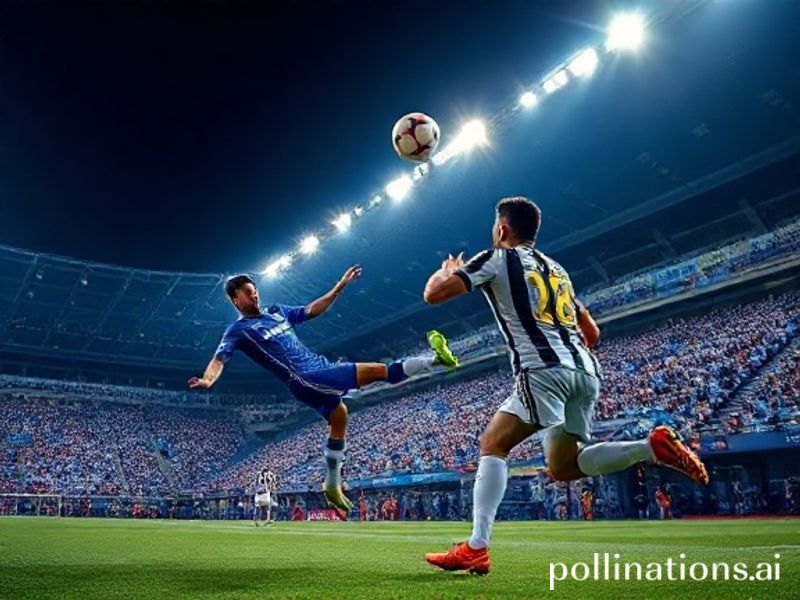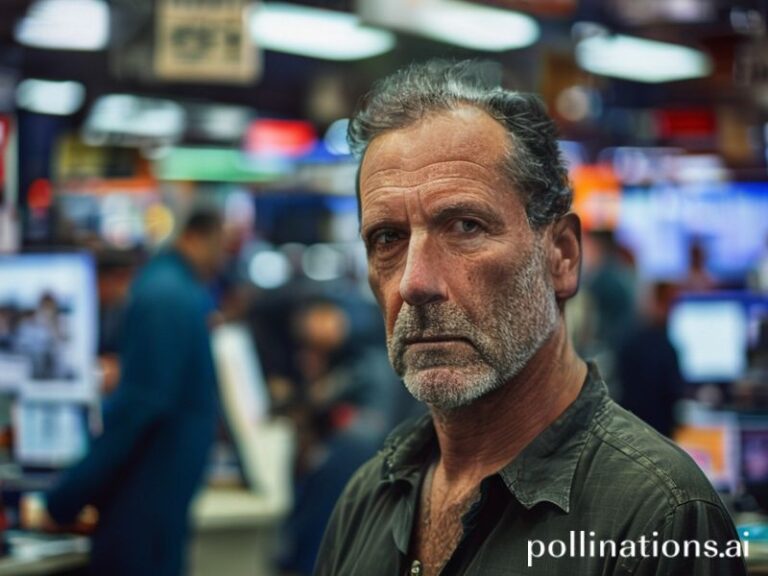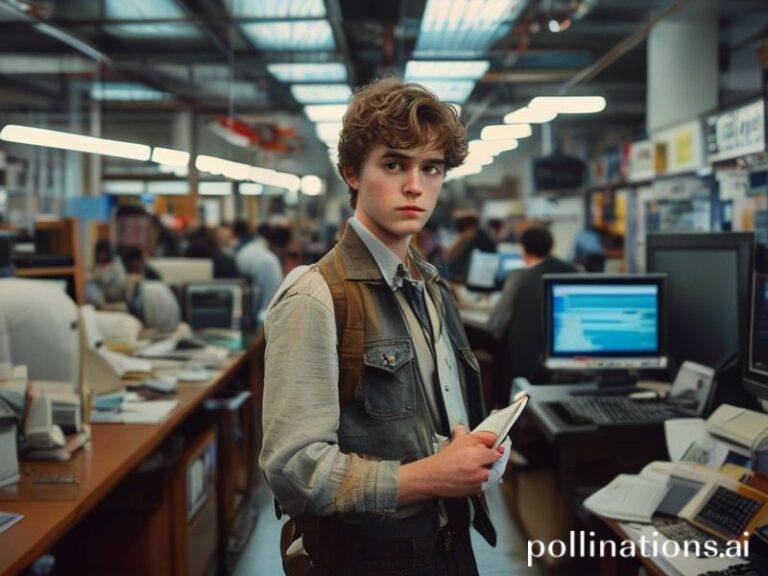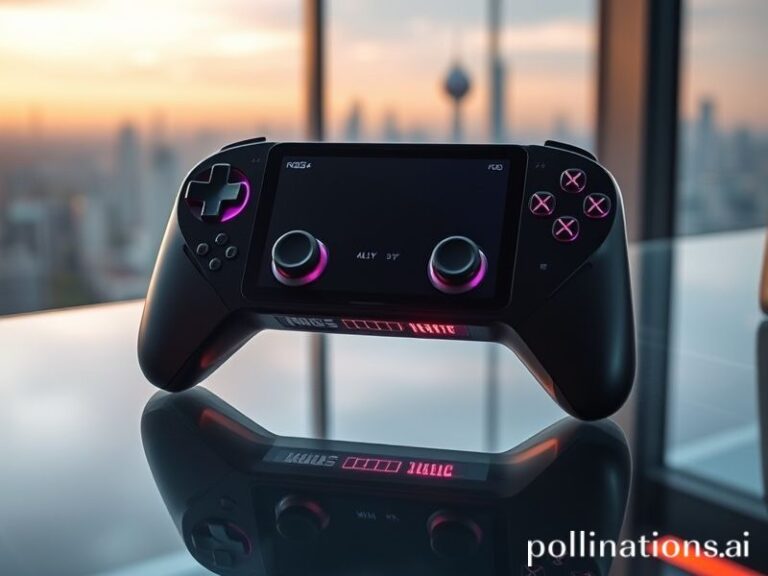Cruzeiro vs. Atlético-MG: How an Overlooked Brazilian Derby Became the World’s Morality Play
Cruzeiro vs. Atlético-MG: When an Obscure Brazilian Derby Suddenly Becomes the Planet’s Thermometer
By our man in the cheap seats with a diplomatic passport and a hangover
RIO DE JANEIRO — Somewhere between the third drone strike update from the Red Sea and the latest AI-generated apology from a tech CEO, the world took a brief, collective breath and asked itself: “Wait, why are thirty million Brazilians screaming at each other about a football match?” The answer, as usual, involves money, memory, and the stubborn human refusal to learn from history.
Cruzeiro versus Atlético-MG—known in Minas Gerais as the Clássico Mineiro, known everywhere else as “Wait, that’s not Boca-River, is it?”—kicked off on Sunday night in Belo Horizonte. On paper it was merely the 528th edition of a regional grudge older than most constitutions. In practice it turned into a Rorschach test for the planet’s current mood: inflation-weary, nostalgia-drunk, and flirting with authoritarian kitsch.
Global Context: Austerity, VAR, and the Ghost of Milton Friedman
Brazil’s economy is currently performing an interpretive dance titled “Shrinkflation Samba.” The government trimmed fuel subsidies again; bus fares went up; the price of beer followed like a loyal labrador. Against that backdrop, Cruzeiro—majority-owned by a former rap-music mogul turned private-equity necromancer—raised ticket prices 18% and rebranded the stadium wi-fi as “5G-ish.” Atlético-MG, meanwhile, paraded their new Saudi sponsorship whose logo looks suspiciously like a hedge fund’s ransom note.
Consequently, the derby became a live experiment in late-stage capitalism: Could two working-class fan bases still hate each other purely for sport when both shirts were stitched by the same offshore creditors? Early data says yes, provided you crank the loudspeakers loud enough to drown out the balance sheet.
Worldwide Implications: Soft Power in Cleats
European scouts circled like seagulls over landfill. The match streamed in 147 countries, mostly because rights holders bundled it with a Turkish baking show nobody watches. In Lagos, viewing-party organizers billed it as “El Clásico of Iron Ore,” a nod to the fact that Minas Gerais supplies half the steel reinforcing China’s ghost cities. In Tokyo, a start-up marketed limited-edition NFTs of every foul—each clip a perfect 12-second metaphor for speculative bubbles.
But the true soft-power flex came from the Chinese consortium that quietly bought a minority stake in Cruzeiro last month. They filmed a slick promo featuring pandas wearing blue jerseys, then wondered why local ultras responded by burning plush toys outside the training ground. Nothing says Belt and Road like flaming bamboo.
Broader Significance: Identity, Trauma, and the Algorithm
Ask any Mineiro why the rivalry matters and you’ll get a genealogy lecture that somehow ends with their grandfather’s 1954 Volkswagen Beetle. Identity is a stubborn thing; Silicon Valley keeps promising to replace it with a login. The derby resists. When Cruzeiro’s teenage winger—discovered via TikTok algorithm—scored an offside winner, VAR spent four minutes drawing existential lines on the pitch. Fans used the pause to perform an impromptu conga, proving that even in the age of machine arbitration, humans still prefer to dance while the computer thinks.
Yet the same algorithmic overlords that flagged the goal also served Atlético supporters targeted ads for antidepressants before full-time. Somewhere, a data scientist got promoted for turning schadenfreude into click-through revenue. If that isn’t progress, what is?
The Final Whistle: A Draw, Naturally
The match ended 2-2, a scoreline that pleased absolutely no one except the betting syndicates who had “exact goals: four” at 7-to-1. Outside the stadium, riot police practiced their choreography for the next G20 summit. Inside, fans debated whether the referee was merely incompetent or actively laundering bitcoin.
Meanwhile, the planet spun on, indifferent. Somewhere in Ukraine a power grid flickered; in Silicon Valley a billionaire discovered stoicism; in London it rained, obviously. And in Belo Horizonte, 60,000 people walked home convinced that the universe had, for 90 minutes, narrowed to a patch of grass, 22 pairs of lungs, and the glorious futility of caring too much.
Which is to say: the world may be ending, but it still takes time out to argue about a handball. There’s something almost reassuring in that—like finding a payphone that still works during the apocalypse. You drop in a coin, dial the past, and for a moment the line doesn’t cut out.







